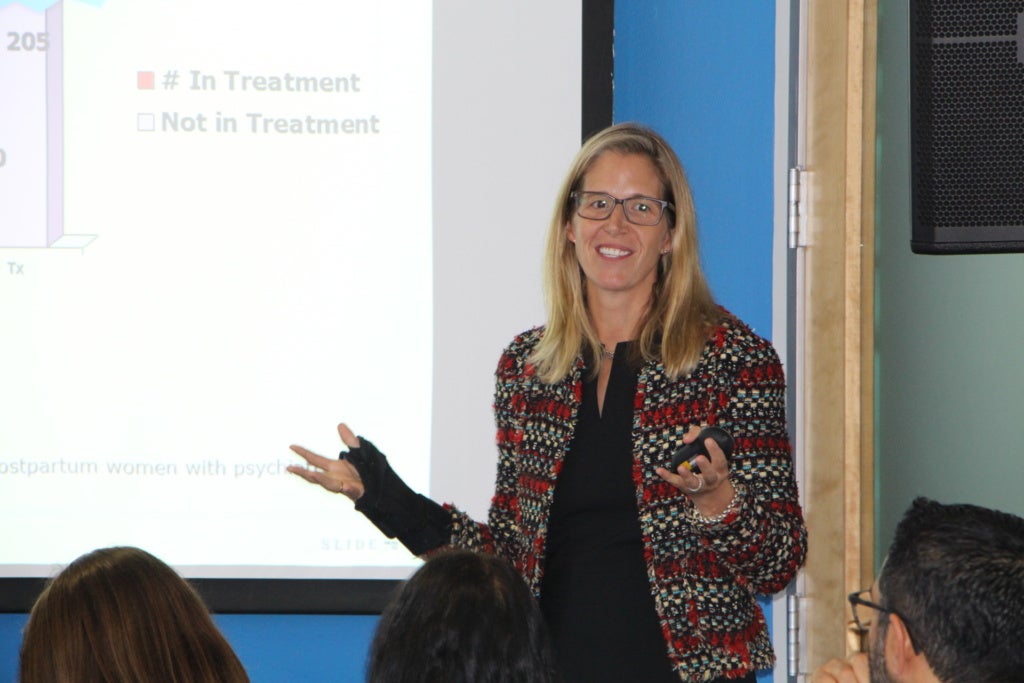
Ascend Network Partner Megan Smith
Becoming a parent rewires the brain—yet policymakers often overlook the power of this transformation. In September, Ascend at the Aspen Institute hosted a Brain Science and Positive Parenting roundtable to connect the latest research to programs and policies. In partnership with the Ford Foundation, Ascend invited leaders from across science, parenting, and policy to explore new neurological research. Scientists have learned so much about parenting in the past decade—but very little of that information reaches the families who need it most. The challenges of becoming a parent are often compounded by poverty, making parenting “a sport played on a very uneven playing field,” said Ascend fellow Sarah Watamura, a psychology professor at the University of Denver. Watamura and Ascend Network Partner Megan Smith of the New Haven Mental Health Outreach for Mothers Partnership shared the latest research on brain science and applied programs for parenting. Then federal, state, and community leaders shared pragmatic insights into how this research can be woven into family programs and services. “From executive function to economic-return research,” Anne Mosle, the executive director of Ascend, said, “we have a great opportunity to leverage the lessons from brain science to support families in need.”